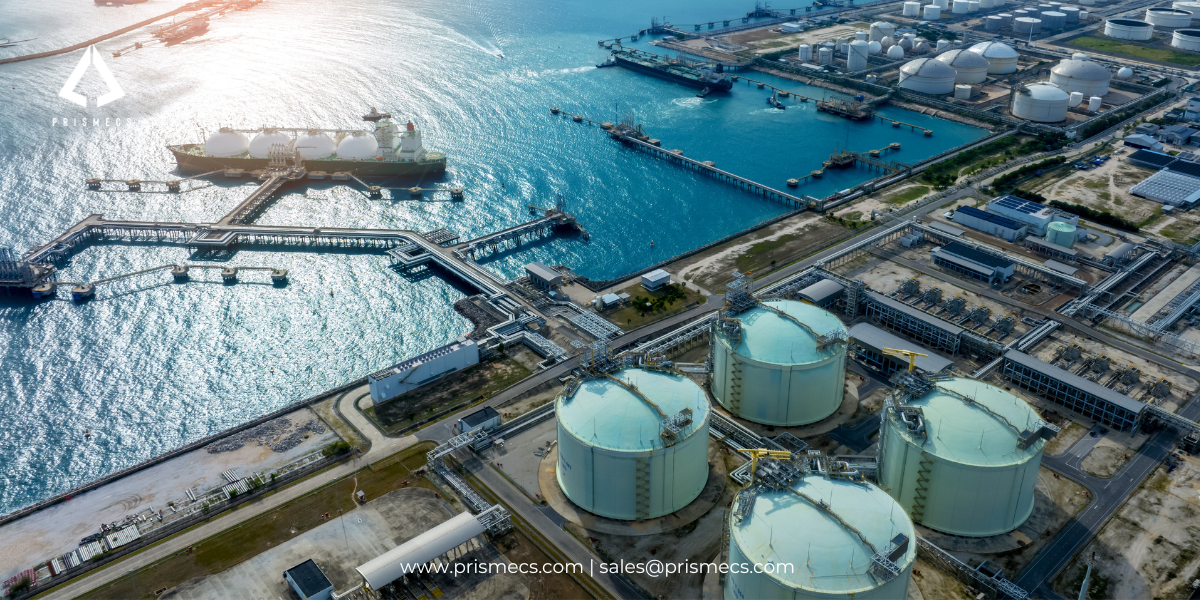
The global energy sector is undergoing a profound transformation, driven by the urgent need to combat climate change and transition to sustainable energy sources. Historically, industries and transportation systems worldwide have relied on fossil fuels like gasoline, diesel, and jet fuel.
These energy sources, formed millions of years ago from decomposed organic matter subjected to extreme heat and pressure, have powered economies for decades. However, their environmental impact chiefly the release of carbon dioxide and other greenhouse gases has catalyzed a global shift toward cleaner alternatives.
Evolution of the Oil and Gas Industry
The oil and gas sector remains vital to the global economy, providing energy for electricity generation, transportation, and heating. Despite its pivotal role, the industry faces mounting challenges, including price fluctuations, regulatory pressures, and the need to reduce CO2 emissions.
These challenges, combined with the growing competitiveness of renewable energy, are reshaping the industry. Major companies are now channeling significant investments into renewable technologies and carbon capture and storage (CCS) to align with global sustainability goals.
The Current State of the Oil and Gas Industry
The oil and gas industry has been integral to economic growth, powering transportation, manufacturing, and heating systems for decades. Daily extraction and consumption of millions of crude oil and natural gas barrels meet the world’s energy needs.
However, this reliance on fossil fuels comes at a cost.
Oil and gas combustion releases greenhouse gases, contributing to climate change and environmental degradation. Recognizing this, several national oil companies (NOCs) and major industry players are committing to net-zero emissions targets. Notable initiatives include multi-billion-dollar investments in renewable energy projects and the establishment of funds to support energy efficiency and clean energy solutions.
One of the largest NOCs in the world recently announced a target of net-zero emissions by 2050. Significant investments in renewable energy accompany this commitment. Others have committed to investing billions over the next few years to build a renewable-energy business. They are also launching a fund of approximately $500 million (Mckinsey). This fund will invest in energy efficiency and renewable energy solutions.
The Rise of Renewable Energy
The global energy transition is gaining momentum as environmental concerns and the need to reduce carbon emissions intensify. Renewable energy sources like solar, wind, and hydropower offer clean, sustainable alternatives to fossil fuels and have the potential to reshape the energy landscape.
According to McKinsey’s Global Energy Perspective. Fossil fuels such as oil and natural gas will continue to make up a significant share of the energy mix by 2050. Partly because of how they combine cost-effectiveness and security of supply. Renewable energy technologies have witnessed rapid advancements and cost reductions in recent years.
It makes them increasingly competitive with traditional fossil fuels. As a result, investment in renewable energy projects has surged. Nations, businesses, and consumers alike are embracing clean energy solutions. It diversifies their energy portfolios and reduces reliance on oil and gas.
Challenges and Opportunities
The shift to renewable energy presents both challenges and opportunities for the oil and gas sector. Declining demand for fossil fuels, evolving consumer preferences, and the introduction of carbon pricing mechanisms compel companies to innovate and adapt.
At the same time, these changes open doors to invest in renewable energy projects and low-carbon technologies like CCS, enabling the industry to remain relevant in a sustainable future.
The rise of carbon pricing mechanisms and a growing divestment movement also highlight a shift in investor sentiment toward sustainable investments. Oil and gas companies are responding by expanding their renewable energy portfolios, adopting technologies to reduce emissions, and exploring environmentally conscious business models.
Oil and Gas Outlook 2024
The oil and gas sector faces a complex market environment in 2024. While global oil prices have experienced seasonal fluctuations due to weather and geopolitical factors, overall production growth is expected to remain modest, concentrated primarily in key regions like the Permian Basin. Natural gas markets are projected to stay relatively stable, with Henry Hub spot prices averaging below $3.00 per MMBtu, supported by strong production and ample storage inventories.
Amid these market dynamics, institutional investment is increasingly guided by ESG considerations, leading to tighter capital flows for traditional fossil fuel projects. Companies must navigate these financial constraints while planning capital expenditures and operational strategies for both existing assets and future energy ventures.
This is where Prismecs’ expertise becomes critical. By leveraging advanced technology and consulting services, distributed energy solutions, and turnkey project execution capabilities, Prismecs helps oil and gas operators optimize capital allocation, enhance operational efficiency, and integrate low-carbon and renewable energy solutions. Our support ensures companies can maintain reliable energy production while strategically positioning themselves for the ongoing energy transition.
The Role of Technology and Innovation
Technology and innovation are pivotal in bridging the gap between traditional and renewable energy systems. Modern drilling and data analytics techniques are reducing the environmental footprint of fossil fuel operations, while advancements in renewables expand clean energy deployment.
Carbon capture technologies offer a practical solution for mitigating emissions, allowing continued use of oil and gas resources during the transition to a greener energy system.
Carbon capture and storage (CCS) technologies hold promise for mitigating the environmental impact of fossil fuel extraction and combustion. By capturing and storing CO2 emissions from power plants and industrial facilities.
The Imperative of Energy Transition
The transition to renewable energy is no longer optional, it’s a necessity. Climate change mitigation, energy security, and sustainable economic growth drive the shift from fossil fuels to renewables. Solar, wind, and hydropower technologies promise a more resilient, equitable, and environmentally sustainable energy future.
Policy support, technological advancements, and declining costs have fueled a surge in renewable energy capacity. Governments, businesses, and consumers must collaborate to accelerate this transition and address the pressing challenges of climate change.
The Way Forward
The oil and gas industry must embrace change and innovation to thrive in the age of renewable energy. This will require collaboration across sectors. Governments, businesses, and civil society need to work together. They must accelerate the transition to clean energy and address the pressing challenges of climate change.
Oil and gas companies must diversify their portfolios and invest in renewable energy and low-carbon technologies. They should adopt more sustainable business practices to remain competitive in a rapidly evolving energy landscape.
Conclusive Remarks
The oil and gas industry stands at a crossroads in its evolution, with the dual challenge of meeting global energy needs and addressing environmental concerns. The integration of renewable energy technologies, combined with sustainable practices, provides a path forward. The sector can play a pivotal role in shaping a sustainable and equitable energy future by embracing innovation and environmental stewardship.
Embrace the Future of the Oil and Gas Industry with Prismecs Renewable Energy Solutions
Prismecs empower the oil and gas industry to thrive in the age of renewable energy. By leveraging cutting-edge renewable energy technologies, integrating digital solutions, and promoting environmental responsibility.
With Prismecs as a trusted partner, companies can navigate the complexities of the oil and gas industry. Embracing innovation for modern power generation solutions in the renewable energy age. To avail of our services, call us at +1 (888) 774-7632 or email us at sales@prismecs.com.
Frequently Asked Questions
1. How is the oil and gas industry adapting to renewable energy?
The oil and gas industry is diversifying by investing in renewable technologies like solar, wind, and hydrogen. Companies are also exploring carbon capture and storage (CCS) solutions, transitioning to cleaner production methods, and committing to sustainability initiatives to reduce their carbon footprints.
2. Can renewable energy completely replace oil and gas?
While renewable energy is growing rapidly, a complete replacement of oil and gas is unlikely in the near term. The transition will be gradual as renewable energy infrastructure expands. Oil and gas are still critical for sectors like petrochemicals, aviation, and heavy industries where alternatives are limited.
3. How do renewable energy advancements impact oil prices?
The rise of renewable energy often creates downward pressure on oil prices by reducing demand for fossil fuels. However, geopolitical factors, production policies, and market fluctuations influence oil prices significantly.
4. What challenges do oil and gas companies face when transitioning to renewable energy?
Challenges include high initial investment costs, regulatory hurdles, balancing shareholder expectations, and the technological complexities of integrating renewables with traditional operations.
5. What does the future hold for the oil and gas industry in the age of renewable energy?
The future of the oil and gas industry lies in balancing operations with renewable energy integration. Companies that embrace innovation, sustainability, and adaptability will likely thrive as the energy landscape evolves toward a low-carbon economy.
Tags: Crude Oil Energy Transition Million Barrels Oil and Natural Gas Global Oil Gas Prices Greenhouse Gas Fossil Fuels Renewable Energy Oil and Gas Companies Oil and Gas Industry
recent posts

Power Generation
10 minutes read
How to Maximize Uptime in Power Generation Plants
Discover how Prismecs power plant maintenance helps operators prevent outages, protect revenue, and keep turbines running at peak performance. Learn h...

Renewables
8 minutes read
Opportunities in Renewable Energy Development
Explore Renewable Energy Development strategies focused on grid stability, faster deployment, and resilient power systems with Prismecs. Plan your nex...

Press Release
2 minutes read
Altaaqa Global & Prismecs Form Strategic Cooperation to Accelerate Modular Power Deployment Across USA
Prismecs and Altaaqa Global Announce Strategic Cooperation to Accelerate Modular Power Deployment in the United States Houston, TX & Dubai, UAE – Febr...

Procurement
9 minutes read
Complete Guide to Industrial Procurement Services
Explore Industrial Procurement Services for power and oil & gas projects. Cut delays, secure critical equipment, and build resilient supply chains wit...